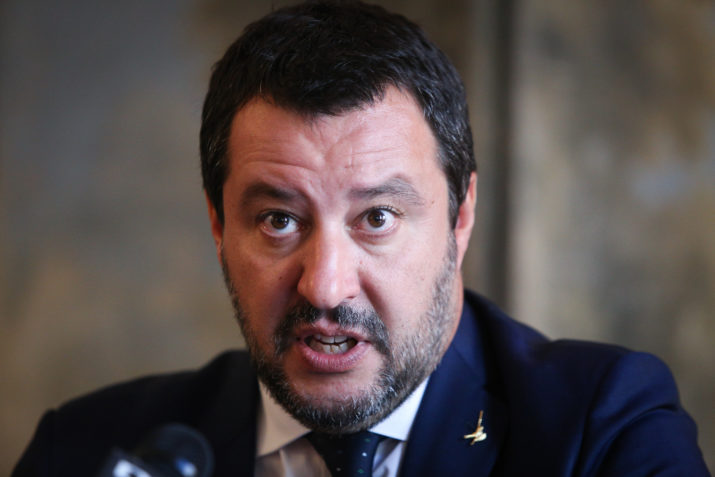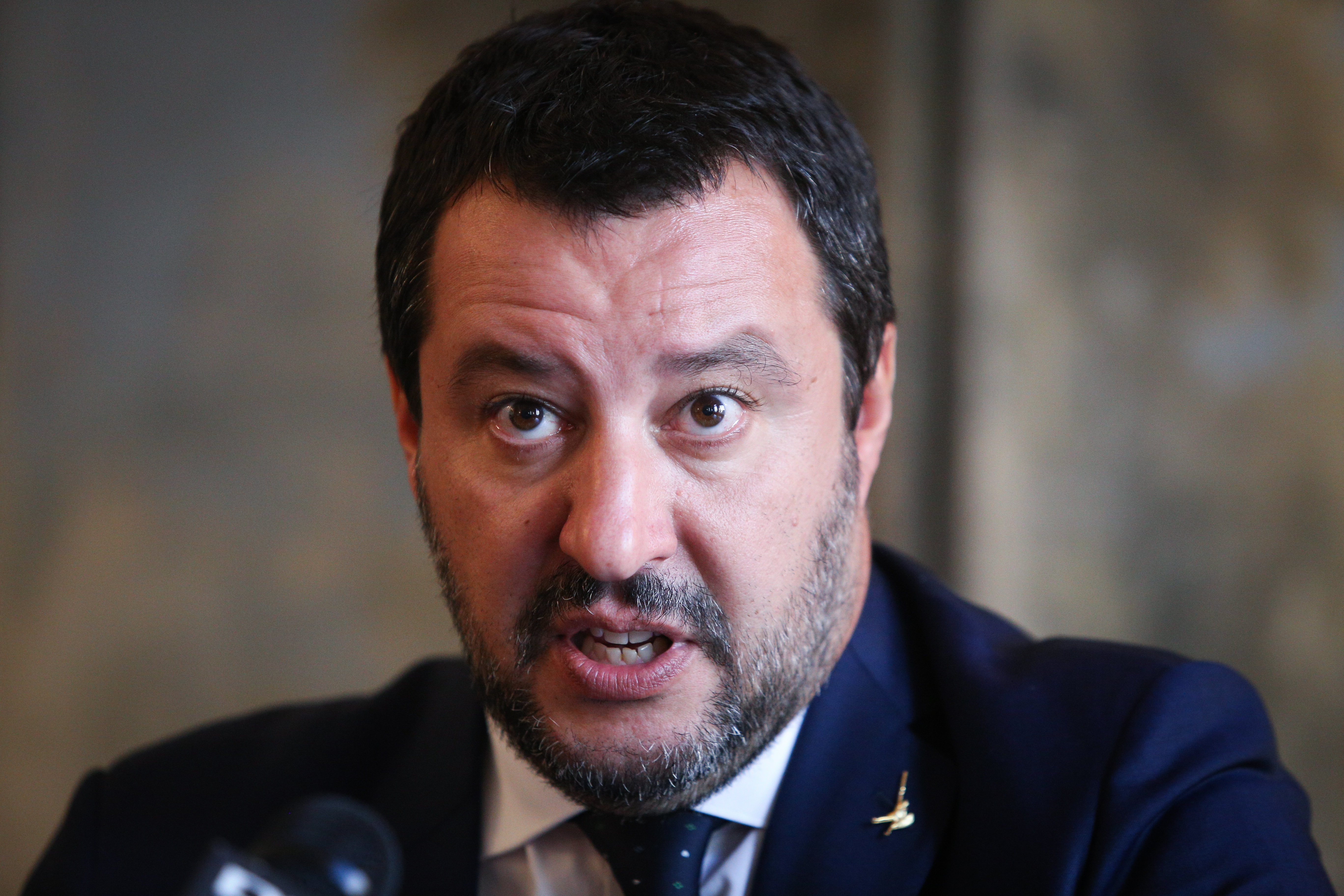

Identity politics forms the core of the critical cultural and feminist studies, and provides both epistemological and pedagogical framework for our understanding of Selves, Others, and our understanding of positionality of Selves in relation to those Others – hugely problematic in the current times of increased nationalism, hegemonic patriarchy, and controversial border politics across the globe. Paradoxically, critical feminists have tried to deconstruct patriarchy, demolish Othering, and rethink inclusion for decades. From warning against white supremacist capitalist patriarchy (bell hooks’ Outlaw culture), to examining the post-colonial “stranger-danger” phenomenon (Ahmed), to encouraging the understanding of matrix of domination as intersectional (Kimberle Crenshaw), feminist thinkers have theorized the multifaceted phenomenon of cultural Othering as essential for understanding border politics.
Creating dualities of identity-based superior and inferior groups as normalized premises for cultural Othering and eventual social exclusion has been an essential concern for many critical feminist thinkers. In her most recent book The Origin of Others, Toni Morrison reminds us how ancient the phenomenon of creating the borders is: “Our tendency to separate and judge those not in our clan as the enemy, as the vulnerable and the deficient needing control, has a long history not limited to the animal world and prehistoric man” (3). Klein emphasizes the horrific outcomes of Othering historically:
We know from history that white supremacist and fascist movements are far more likely to turn into wildfires during periods of sustained economic hardship and national decline. That is the lesson of Weimer Germany, which – ravaged by war and humiliated by punishing economic sanctions – became ripe for Nazism (97).
That warning was supposed to have echoed through the ages and across borders, but did not. Quite the opposite: Othering has revealed its ugly face in multiple locations around the world, introduced and practiced by those in power – like Italian’s new inner minister Matteo Salvini. Ironically, Salvini’s case is a perfect example of everything but perfect social reality, in which every form of cultural Othering and creating new borders (the phenomena feminists have being fighting against for so long) are skillfully practiced in Italy, posing the questions about the fast-changing present and future of the country and its people.
Matteo Salvini, the self-confident 45-year-old Italian winner of the most recent national elections, and the country’s most popular politician, has an ambitious plan to develop Italy’s stagnating economy, strengthen its national security, and create a better future for his countrymen. Similar to Trump’s “America first,” the interior minister adopted ultra-nationalistic “Italians first” as his leading ideology. Alarmingly, Italian new ultra-nationalistic course already creates tensions with the European Union, increasing the possibility of Italian exit from the organization and with that, denying its own political, economic, and cultural belonging. Regardless of the EU-related tensions, the rhetorical strategy of the interior minister works: In addition to promises of an economic and political reboot, Salvini’s slogans gli italiani prima di tutto! (the Italians first and foremost!) and al centro – gli italiani! (the Italians in the center!) contain promises of restoring national pride. Another particularity of Salvini’s strategy is his appeal to the value of la famiglia as the center of Italian life, especially in its traditional, nostalgically-patriarchic understanding of family that interprets difference (racial, sexual, or religious) as deviance. Recrafting Italian identity politics became one of Salvini’s trump cards. Although challenging racism and homophobia has been a significant dimension of feminist movement for decades (bell hooks Feminism is for Everybody), under the current leadership Italy seems to be moving in the opposite direction with its identity politics.
Rethinking the Italian Self and normalizing its patriarchal core implies multiple approaches. Using religion as a tool of normalization of patriarchy, and re-establishing the infamous in critical feminist studies Madonna/Whore duality is one of them. Salvini has already proposed placing the crucifix in every public place (in addition to classrooms where it is the norm) to use Catholicism as a powerful patriarchic tool of disciplining people. He also attempted to deconstruct the concept of rainbow families and erase the fact that thousands of families in Italy are in fact established rainbow families. Instead of inclusive “Parent One” and “Parent Two” on electronic identity cards, Salvini urges to use padre (father) and madre (mother). Being called a “troglodyte,” Salvini fired back: “For the left, to defend the concept of ‘mother’ and ‘father’ means to be a ‘troglodyte.’ So I’m proud of being a ‘troglodita!’” (qtd. in Cremonesi 1). The fact that the Pope himself recently encouraged parents to send their homosexual children to psychiatrists only added to the emerging Italian status quo of the matter. Similarly, Salvini promised to exercise everything in his power to defend what he defines as “the natural family,” to reward natural birth (“no renting out of a uterus for rainbow families, and other horrors”), and enable fertility and the future of the nation (Cremonesi). The Handmaid’s Tale, Salvini style. Except, Matteo Salvini’s synonymizing gay families with the extinction of an Italian future and its happy children strongly resembles Vladimir Putin’s drastic strategy of synonymizing pedophilia and homosexuality. Alarmingly, such dehumanizing rhetorical strategies work, especially when they come from skilled rhetors. Persuasive and charismatic, accessible for embraces and selfies, famous for organizing blood-donation drives, advocating for Italian olive oil instead of Coca Cola, constantly referencing “mamma” and “papa,” and displaying overall good-heartedness and generosity, Salvini comes across as a nice fellow who lives around the corner and understands the struggles of Italian vie quotidienne. Salvini’s popularity is especially thought-provoking, given the status quo of his chosen course not only for the Italians but also towards Italy’s numerous Others from outside the country: the immigrants. The latter, according to Salvini, are the invaders, responsible for all kinds of Italian social ills (Khrebtan-Hörhager). The interior minister’s standing on immigration reveals the focal point of his border politics.
Matteo Salvini has served as Italy’s interior minister for less than half a year, but has already overturned policies on migration and asylum. Certain events played into his hands. As Libya fell into chaos, the number of refugees hoping to reach Europe increased exponentially (see Stille). Already in 2015, Salvini organized rallies with the slogan “Stop the Invasion!” Language often serves as a powerful tool of owning, governing, and dehumanizing the Other (Morrison and Ahmed). Salvini mastered the language. Capitalizing on the refugee crisis, Salvini harshened the anti-immigrant rhetoric in his statements about illegal immigration being synonymous with crime, and accused thousands of illegal immigrants of stealing, raping innocent Italians, and drug-dealing. “Bad Hombres”, Salvini style. In his drive to close Italian ports to migrant rescue ships, Salvini made his mark by turning away a boatload of more than 600 African refugees on a ship named Aquarius (operated by the Franco-German NGO SOS Méditerranée, which rescues people stranded at sea trying to reach the shores of Europe). On the night of July 30, 2018, almost 350 people were taken back to Libya (not considered an EU approved “safe landing” point), with no guarantee of their human rights. No remorse from Salvini but a statement: “La pacchia è finita!” (“The party is over”)! Salvini is determined to protect Italy from the “invaders” and “lazy criminals.” He often quotes the fascist dictator Mussolini: Tanti nemici, tanto onore! (“Many enemies, much honor!”).
Salvini’s “Us versus Them” rhetoric causes multiple problems, nationally and internationally. His rise to power has significantly heightened concerns about the escalation of racist and xenophobic violence. Dozens of attacks on black and Roma people have been recently recorded all over Italy, ranging from drive-by shootings with air guns, to throwing an egg at Italian athlete of Nigerian descent Daisy Osakue, to the assassination of a Malian trade unionist campaigning for fair pay for migrant workers. As Toni Morrison writes, “Death is but the superlative example of what it means to live as an “Other,” to exist beyond the border of a great ‘belonging’” (xv). Across Italy, in the two months since Salvini became interior minister, there have been twelve shootings, two murders, and thirty-three physical assaults—all racially motivated (see The Guardian). With the firm xenophobic approach, Salvini’s administration is demonstrating the world where the new Italian borders of humanity, civility, and inclusion lie.
Many Italians protested against the interior minister already in July 2018 in Rome: Salvini’s vision of Italy does not represent the entire nation. Speaking of the nation – it is important to remember the Italian infamous split between the North and the South, conceptualized as the Italian chronical problem, and also known as Italian internal Othering. A Milanese northerner, Salvini represents the Northern League, famous for its hatred for southern Italians. In the past, frequently used slogans of the League referred to the Italian capital as “Roma, ladrona!” (“Rome, the thief!”), revealing the long-existent in the party urge to separate the North form the South and split into two Italies. In 2009, Salvini was recorded chanting a derogatory song «Senti che puzza, scappano anche i cani. Sono arrivati i napoletani…» (Smell the stink, even dogs are running away, the Neapolitans have arrived). Although Salvini issued a public apology, tensions between the North and the South of Italy have further intensified in the times of political, economic, and demographic turmoil, further problematizing the politics of borderlands and belonging.
Furthermore, attacking immigrants should not serve as a smoke curtain to the country’s other “wicked” problems, such as porosity of Italian national borders with regard to its own population. In addition to the stagnating economy, the country is in the midst of a national demographic crisis, causes by low birth rates, ageing population, and a tremendous “fuga di cervelli” (brain-drain). In 2016 alone – the same year that marked the pick of immigrants’ arrivals – some 157,000 Italians left the country in search of better opportunities. The emigration of the young educated Italians is a natural outcome of a prolonged period of economic stagnation, with unemployment rates remaining above 10 percent, and youth unemployment specifically being above 30 percent. Two million young people have left the country during the last decade. Besides, many young Italians still live with their parents well into their thirties, too economically insecure to marry and start families, contributing to the problem of an ageing nation (see The Guardian). Ironically, stopping boatloads from Northern Africa doesn’t change the basic demographic arithmetic, which shows that Italy needs a healthy level of immigration to survive. Regardless of Salvini’s inflammatory xenophobic rhetoric, most of Italy’s immigrants are young, arrived legally, are working and paying taxes, and could improve Italy’s demographic situation. Yet, with the current rhetorical framing of the immigrant as the ultimate, threatening, criminal, and inassimilable Other, embracing and enabling a healthy, inclusive multiculturalism is hardly a realistic option for Italy.
Finally, current Italian status quo on immigration sheds light on the issues of multiculturalism transnationally and cross-culturally. Klein concludes:
If there is an overarching lesson to be drawn from the foul mood rising around the world, it may be this: we could never, ever underestimate the power of hate. Never underestimate the appeal of wielding power over “the Other,” be they migrants, Muslims, Blacks, Mexicans, women, the other in any form. Especially during times of economic hardship, when a great many people have good reason to fear that the jobs that can support a decent life are disappearing for good (Klein 84).
Although it is easy to accuse Matteo Salvini of “isms” and “phobias” – ranging from racism, sexism, classism, and populism, to xenophobia, transphobia, islamophobia, homophobia – Italy’s geographical location does make it extremely vulnerable in times of humanitarian crisis, with the European Union turning a blind eye towards the drastic demographic development in the country. The lack of a unified European policy beyond the Dublin accord that disproportionally burdens Greece, Italy, and Spain (i.e., the first points of entry) with the responsibilities for accepting immigrants does not help. Although Europe’s immigration problems and its crime problems are mostly unrelated, they are inseparable in national rhetorics: fear of foreigners is growing in Sweden and Denmark and is creating a political crisis in Germany (The Guardian). German political rhetoric has changed from encouraging the Willkommenskultur (the culture of open welcome) to introducing the concept of Messermigration (the “knife migration,” which associates migrants with violence with an Islamic twist) (see Khrebtan-Hörhager). Italy’s new prime-minster Guiseppe Conte is demanding a Europe-wide deal to end the system under which the first country of migrants’ arrival is responsible for processing their asylum applications (Stille). And, governed by anti-refugee parties, Central European countries are not changing their minds on taking share of numerous asylum-seekers. Meanwhile, French and German leaders Macron and Merkel warn against strong nationalistic tendencies, capable of destroying the future existence of the European Union. Notable is Macron’s initiative to build a “common strategic culture” in Europe and to urge the Europeans to resist the demagogy of those who want to create divisions, and blame Others (Janning).
Ironically, the uproar over refugees comes at a time when their numbers have fallen dramatically. In addition to the ongoing polemics in a divided and dividing Europe, Europe is on the edge of rethinking and re-shifting its borders – geographical, rhetorical, and humanitarian. “White supremacy, misogyny, homophobia, and transphobia have been the elite’s most potent defenses against genuine democracy. A divide-and-terrorize strategy” (Klein 97). Alas, current Italian (and largely European) development unveils feminists’ worst fears and reveals crude and primitive forms of patriarchic, xenophobic, homophobic, and misogynist survival of the fittest, paired with dehumanization, degradation, and demonization of the Other and – as a natural outcome – erection of new, geographical and rhetorical borders that will eventually irreversibly change the face of a once united Europe. Divided, Europe has little if any chances to survive as the beacon of values of the democratic world. United, we might stand. Divided, we will likely fall.
Julia Khrebtan-Hörhager is an Assistant Professor of Communication, Education Abroad Advisor, and a Director/Leader of Summer Education Abroad programs in Italy. She is holder of two International Communication Association Top Paper Awards, and a number of communication studies Capstone Awards. Her research and teaching interests are in intercultural and international communication, European studies, conflict, international cinematography, and critical media studies. Feminist perspectives on communication and business leadership with a global mindset are further areas of her scholarly focus.
References:
Ahmed, Sara. Strange Encounters: Embodied Others in Post-Coloniality. New York: Routledge, 2010.
Cremonesi, Marco “Salvini e il Caso Moduli. ‘Via genitore 1 e 2, tornerà padre e madre’” Corriere della Sera 10 Aug. 2018, pp.1-3.
Crenshaw, Kimberle. “Intersectionality and Identity politics: Learning from Violence against Women of Color.” Stanford Law Review. Vol. 43, No. 6, 1991, pp. 1241-1299.
Janning, Josef. “Merkel and Macron: Edging towards Change?” European Council on Foreign Relations. 7 June 2018. P. 1-4.
Khrebtan-Hörhager, Julia. “Inflammatory Rhetoric of Othering in Times of Humanitarian Crises” Communications Current. 5 Oct. 2018. pp. 1-5.
Klein, Naomi. No Is Not Enough: Resisting Trump’s Shock Politics and Winning the World We Need. London: Allen Lane, 2017.
hooks, bell. Feminism is for Everybody: Passionate Politics. New York: Pluto Press, 2000.
hooks, bell. Outlaw Culture: Resisting Representations. New York: Routledge, 2006.
“Matteo Salvini: A Political Chameleon Thriving on Fears.” The Guardian. June 22 2018. p. 1-5.
Morrison, Toni. The Origin of Others. Cambridge: Harvard University Press, 2017.
Stille, Alexander. “How Matteo Salvini Dragged Italy to the Far Right.” The Guardian Weekly 18 Aug. 2018, p. 1-12.
Photo: October 23, 2018: Matteo Salvini, Deputy Prime Minister of Italy and Minister of the Interior, holds a press briefing at the Italian embassy in Bucharest | Shutterstock
Published on February 5, 2019.




